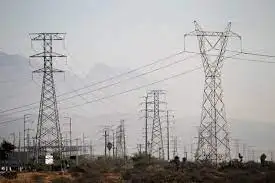Durango pulls plug on green power to cut budget
By Associated Press
High Voltage Maintenance Training Online
Our customized live online or in‑person group training can be delivered to your staff at your location.

- Live Online
- 12 hours Instructor-led
- Group Training Available
City Manager Ron LeBlanc recommended the city stop buying power from renewable energy sources when it became necessary to cut the 2009 budget by more than $500,000. The City Council approved the budget, including his recommendation, earlier this month.
The La Plata Electric Association charges 80 cents above standard rates per 100 kilowatt hours for electricity from solar and wind power. LeBlanc said that adds $45,000 to the city's annual electric bill.
The city buys about 6,800 blocks of green power monthly, which represents about 30 percent of all the electric cooperative's green power customer purchases.
"The budget caused us to rethink a lot of things that normally we just would've funded," LeBlanc said.
Mark Pearson of the environmental group San Juan Citizens' Alliance said was he was upset by the city's decision but also criticized the electric cooperative. He said both the city and utility could be doing more to encourage renewable energy use.
Mayor Renee Parsons voted for the new budget but said she wasn't happy that green power was cut entirely. She said she would rather see across-the-board budget cuts rather than individual items singled out.
Durango began buying green power in 2007 after the City Council signed the Mayors' Climate Protection Agreement to reduce greenhouse gases. The surcharge for electricity from renewable sources then was $2.50.
Mark Schwantes, the utility's director of corporate services, said the rate dropped to $1.25 shortly after the city signed on and then to 80 cents early this year.
Of the 80-cent surcharge, 40 cents is used to buy power generated from alternative sources such as wind and solar, Schwantes said.
La Plata Electric Association's parent company, Tri-State Generation and Transmission, purchases the power from third-parties, including PacifiCorp Power and Rocky Mountain Energy, both based in Salt Lake City.
Schwantes said the remaining 40 cents is invested in local alternative-energy projects in the utility's service area. The revenue also finances rebates for customers who install solar panels on their homes or businesses.
Last year, 12 Durango homeowners received $33,000 in rebates, capped at $3,000 each. Schwantes said the end of the city's participation could delay the payment of future rebates but will not jeopardize the program itself.











